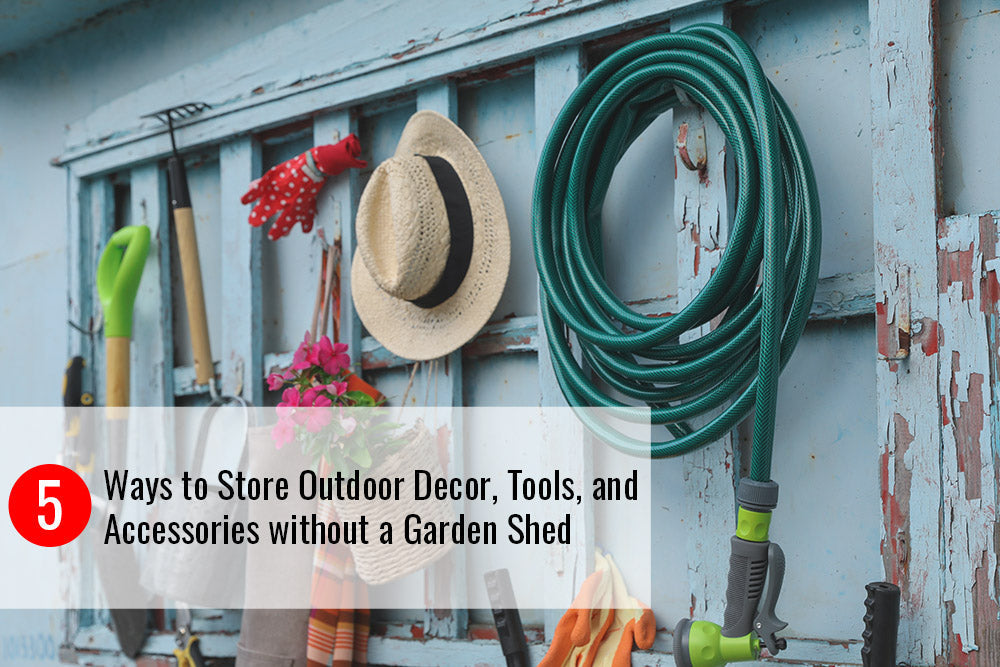If you’ve spent hours planting and caring for a vegetable garden, the last thing you want is for deer to treat it as their personal salad bar! These graceful creatures can wreak havoc on your garden in a matter of hours. Fortunately, with a few simple steps and some deer-resistant plant choices, you can keep your harvest safe. Let's explore how!

What Vegetables Will Deer Not Eat?
Deer are notorious for being picky about which tender leaves and shoots they nibble on. While no plant is completely deer-proof, there are a few vegetables they tend to avoid. Choosing vegetables that deer typically dislike can greatly reduce the chances of them feasting on your crops.
Here are some examples of vegetables deer usually steer clear of:
- Garlic: Deer dislike the strong smell and taste of garlic. Plus, garlic can be an excellent companion plant to protect other veggies as well.
- Onions: Similar to garlic, the pungent aroma of onions makes them unappetizing to deer.
- Leeks: Another member of the allium family, leeks are rarely bothered by deer.
- Squash and Zucchini: Deer generally avoid vegetables with prickly or rough leaves. The texture of squash and zucchini plants makes them less appealing.
- Tomatoes: While deer may be tempted by the fruit, they usually stay away from the strong-smelling leaves.
- Herbs: Certain herbs like rosemary, sage, thyme, and lavender have fragrances that deer tend to dislike.
Incorporating these into your garden can help reduce deer damage, but it’s important to remember that hungry deer can sometimes eat just about anything. You may still want to use other deterrents for a well-rounded defense.
8 Tips to Keep Deer Away from the Garden

1: Install Fencing
One of the most reliable ways to keep deer out is by putting up a physical barrier. A sturdy fence that is 8 feet tall (since deer can jump quite high!) can keep them out. If you don’t want a fence that tall, consider slanting the fence outward or installing double-layered fencing with a gap between the layers. Deer are hesitant to jump into narrow spaces. Using wire or mesh fencing will not only keep your view of the garden unobstructed, it will also blend into the surroundings more than a solid wood fence.
2: Use Natural Repellents
Many gardeners swear by natural repellents to keep deer at bay. Try out some of these options in your garden.
- Homemade Spray: These sprays are easy to make at home and can be applied to your plants to make them unappealing to deer. Be sure to reapply after rain. Try a mixture of water, eggs, and garlic; the smell is unpleasant to deer, but harmless to your plants.
- Soap Bars: Hanging strong-scented soap (like Irish Spring) around the perimeter of your garden can discourage deer from entering. The scent throws them off!
- Hair Clippings: Sprinkling human or pet hair around your garden can sometimes keep deer away, as they associate the scent with predators.
3: Plant a Barrier or Deer-Repelling Plants
In addition to planting deer-resistant vegetables, you can surround your garden with plants that have strong odors, prickly textures, or fuzzy leaves that deer dislike. For example, planting lavender, mint, sage, or marigolds around your vegetable beds can create a natural protective barrier.
4: Install Motion-Activated Devices
Deer are cautious animals, and sudden movements or noises can scare them away. Consider using motion-activated sprinklers, lights, or noisemakers or animal repellers around your garden. When a deer approaches, the sudden spray of water or burst of light can send them running.
5: Try Companion Planting
Another effective strategy is companion planting. This means you grow plants that deter deer alongside your vegetables. For example, planting garlic or onions near more tempting crops like lettuce or beans can help protect them from being eaten.
6: Create Raised Beds or Use Containers

If fencing isn’t an option, consider growing your vegetables in raised beds or containers. Deer are less likely to nibble on plants that are elevated or harder for them to reach. Growing plants in an enclosed greenhouse is also a great option because the cover of the greenhouse hides your vegetables from sight!
7: Keep the Area Around Your Garden Clean
Deer love to graze in areas where they feel safe, so keep the area around your garden clean and free from hiding spots. Trim back tall grass and dense shrubbery where deer might like to hide before venturing into your garden.
8: Alternate Deterrents
For stubborn deer that don’t seem bothered by scent or movement, a rotating approach to deterrents may be necessary. Deer can get used to the same tactic, so try changing things up every couple of weeks. Move around your soap bars or change the placement of your sprinklers to keep them guessing.

Keeping deer out of your vegetable garden may seem like a challenge, but with a combination of deer-resistant plants and preventive measures, you can protect your hard work. Whether it’s installing a fence, using natural repellents, or simply choosing vegetables deer are less likely to eat, your garden can thrive without unwanted visitors.


























